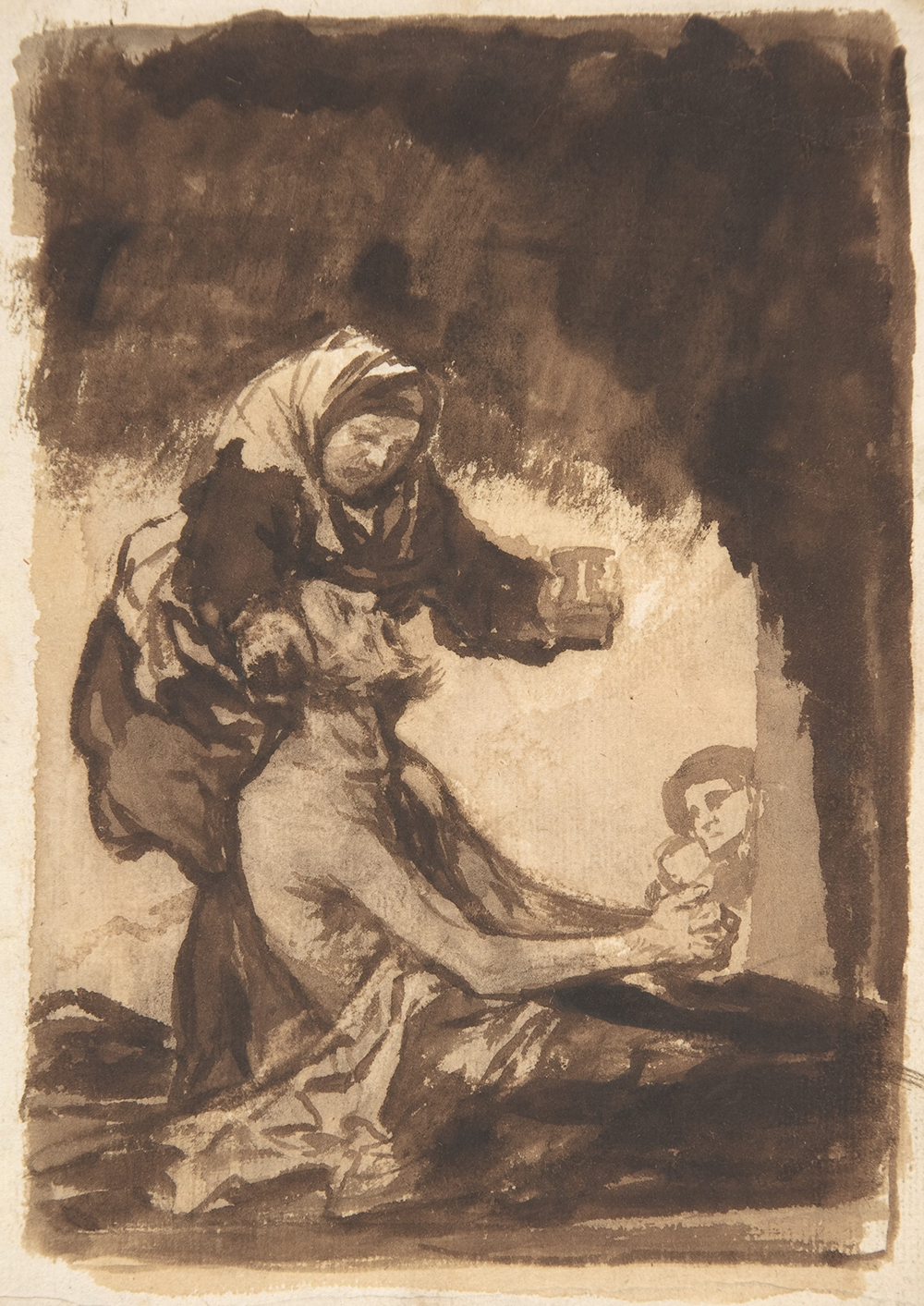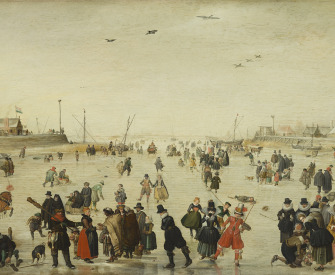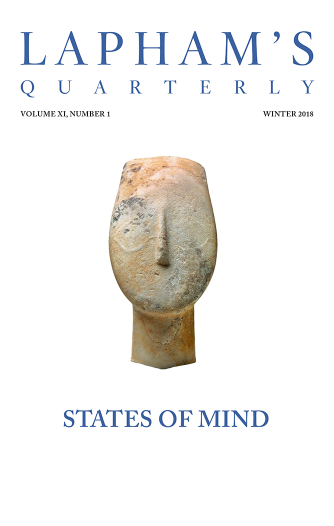Do not ask me to be kind; just ask me to act as though I were.
—Jules Renard, 1898Out in the Cold
Henri Barbusse and the unfortunates.
The Master, who had a pale head with long, marble-like hair, and whose spectacles shone in solemnity, came to a standstill on his morning round opposite my little table at the door of Room 28, and condescended to announce to me that I was henceforth appointed to let in the ten poor people who every month were admitted to the hospitality of the House. Then he went on, so tall and so white among the assiduous flock of students that they seemed to be carrying a famous statuette from room to room.
I stammered the thanks which he did not hear. My twenty-five-year-old heart felt a happy pride in reflecting that I had been chosen to preside in one of the noblest traditions of the House in which, a humble assistant, I was wandering lornly among wealthy invalids.
On the first day of every month the luxurious palace-hospital became the paradise of ten vagabonds. One of its outer doors was opened to admit the first ten who came, whoever they were, wherever they had fallen from or escaped. And for a whole month those ten human derelicts enjoyed the entire hospitality of the comfortable institution, just as much so as the Master’s most valuable patients, as much as the archdukes and multimillionaires. For them, too, were the lofty halls whose walls were not only white, but glistening, the huge corridors like covered streets, which in summer or in winter had the coolness or the mildness of spring. For them also, the immense garden beds set among green velvet, like bunches of flowers so enlarged by magic that one walked among them. For them equally, the outer walls, far off but impassable, which shield one against wide-open space, against rambling roads, against the plains that come to an end no more than the sky. For thirty days the refugees busied themselves only with doing nothing, only worked when they ate, and were no longer afraid of the unknown or of the coming day. They who were remorseful learned to forget things, and they who were bereaved, to forget people.

A Woman Handing a Mug to an Old Man, by Francisco de Goya, c. 1815. The Metropolitan Museum of Art, Harris Brisbane Dick Fund, 1935.
When by chance they met each other, they simply had to turn their heads away hurriedly. There was not in all the House, by order of the Master, a mirror in which they would have found their bad dream again. At the day’s end came the dormitory, peaceful as a cemetery, a nice cemetery, where one is not dead, where one waits—where one lives, but without knowing it.
At eight o’clock on the first day of the following month all ten of them went away, cast back into the world one by one, as into the sea. Immediately after, ten others entered, the first ten of the file that, since the night before, had been washed up against the wall of the house as upon the shores of an island. The first ten, no more, no less, no favors, no exceptions, no injustices; one rule only—they who had already been were never again admitted. The arrivals were asked nothing else—not even for the confession of their names.
And on the first day of the month, as soon as nine o’clock had sounded, exactly together from the Anglican church and the Catholic chapel of the House, I opened the little poor-door.
A crowd of beings was massed against the door-wing and the wall. Hardly had the former turned in the shadow when the tattered heap rushed forward as though sucked in.
My helper had to throw himself forward to enforce a little order upon the greedy invasion. We had to detach by force, to tear away from the mass each one of the besiegers, who were pressed side by side and elbow to elbow, fastened to each other like fantastic friends. The eighth entered, the ninth, the tenth.
And then the door was quickly closed, but not so quickly that it prevented me from seeing, only a step from me, him upon whom it closed, the eleventh, the unlucky one, the accursed.
He was a man of uncertain age; in his gray and withered face lackluster eyes floated. He looked at me so despairingly that he seemed to smile. The touch of that extraordinary disappointment made me start, of that face that was mute as a wound. I glimpsed in a flash—the time that the door took to shut—all the effort he had made to get there, even if too late, and how much he too deserved to come in!
Then I busied myself with the others; but a few minutes later, still affected by the distress I had read on the face of the outcast, I half opened the door to see if he were still there. No one. He and the three or four others—uncertain rags that had fluttered behind him—had gone to the four winds of heaven, carried away along the roads like dead leaves. A little shiver went through me, a shiver almost of mourning for the conquered.
At night, as I was falling asleep, my thoughts went again to them, and I wondered why they stayed there till the last moment, they who arrived only when ten had already taken their places at the door. What did they hope for? Nothing. Yet they were hoping all the same, and therein was a mean miracle of the heart.
We had reached the month of March. On the last day of the old month, toward nightfall, a rather frightened murmur crept from the side of the high road, close to the door. Leaning over a balcony, I could make men out there, stirring like insects. These were the suppliants.
The next morning we opened to these phantoms whom the magical story of the house had called across the world, who had awakened and unburied themselves from the lowest and most awful of depths to get there. We welcomed the ten who first came forward; we were obliged to drive back into life the eleventh.
He was standing, motionless, and offering himself from the other side of the door. I looked at him, and then lowered my eyes. He had a terrible look, with his hollow face and lashless eyelids. There breathed from him a reproach of unbearable artlessness.
When the door divided us forever, I regretted him, and should have liked to see him again. I turned toward the others, swarming in gladness on the flagstones, almost with resignation, wondering at my own firm conviction that the other, sooner than these, ought to have come in with us.
And it was so every time. Every time I became more indifferent to the crowd of admitted and satisfied, and devoted my gaze still more to him who was refused salvation. And every time he seemed to me the most pitiable case, and I felt that I was myself smitten in the person of the one condemned.
In June, it was a woman. I saw her understand and begin to cry. I trembled as I furtively scanned her; to crown all, the weeper’s eyelids were blood red as wounds.
In July, the appointed victim was incomparably regrettable by reason of his great age; and no living being was so compassionable as he who was repulsed the month after, so young was he. Another time, he who had to be snatched from the group of the elect besought me with his poor hands, encircled with the remains of frayed linen, like lint. The one whom fate sacrificed the following month showed me a menacing fist. The entreaty of the one made me afraid, and the threat of the other pitiful.
I could almost have begged his pardon, the “eleventh” of October. He drew himself up stiffly; his neck was wrapped high in a grayish tie that looked like a bandage; he was thin, and his coat fluttered in the wind like a flag. But what could I have said to the unfortunate who succeeded him thirty days later? He blushed, stammered a nervous apology, and withdrew after bowing with tragic politeness—piteous remnant of an earlier lot.
And thus a year passed. Twelve times I let in the vagrants whom the stones had worn out, the workmen for whom all work was hopeless, the criminals subdued. Twelve times I let in some of those who clung to the stones of the wall as on to reefs of the seacoast. Twelve times I turned others away, similar ones, whom I confusedly preferred.
An idea beset me—that I was taking part in an abominable injustice. Truly there was no sense in dividing all those poor folk like that into friends and enemies. There was only one arbitrary reason—abstract, not admissible; a matter of a figure, a sign. At bottom, this was neither just nor even logical.
Soon I could no longer continue in this series of errors. I went to the Master, and begged him to give me some other post, so that I should not have to do the same evil deed again every month.

Henri Barbusse
“The Eleventh.” Born in France in 1873, Henri Barbusse served as an infantryman in the First World War. In 1916 he gained renown for his novel Under Fire, based on his experiences in battle. Barbusse became committed to communism, which he later wrote was “at the summit of the history of ideas,” and in 1918 he departed Paris for Moscow, where he joined the Bolshevik Party. He died of pneumonia in the Soviet Union in 1935.

